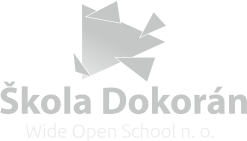KHETAUN (TOGETHER)
With key steps to inclusion of Romani children into quality early childhood programmes
About the project
The project was based on the findings of various research studies showing that quality early childhood education and the inclusion of children from disadvantaged groups in high-quality pre-school programmes is one of the most important protective factors predicting children's success in further education and in later life. Due to the specificity of the target population and the complexity of the Roma issue, educators need to be equipped with specific tools and strategies to successfully integrate Roma children in their classrooms.
The aim of the project was: to develop a comprehensive model, based on the previous experience of the partner organisations, which would include work with children, parents and the local community, and to help raise awareness among educators of their implicit theories, which are often an obstacle to the successful implementation of innovations.
The target groups were preschool administrators and professionals (preschool teachers, counsellors, etc.), Romani parents and children, representatives of the Romani community, representatives of local organisations and other members of the local community.
The activities of the project were based on the implementation of four different courses covering four key pillars necessary for the successful integration of Romani children in preschools and the development of linguistically, culturally and developmentally appropriate multilingual materials for children. Training was provided primarily at international and national level for preschool staff and other key persons directly involved in the implementation of the project. Among other things, guidelines were produced for policy-makers at national and European level, to create space for dialogue and to systematically address the issue of the inclusion of Romani children in preschool education.

